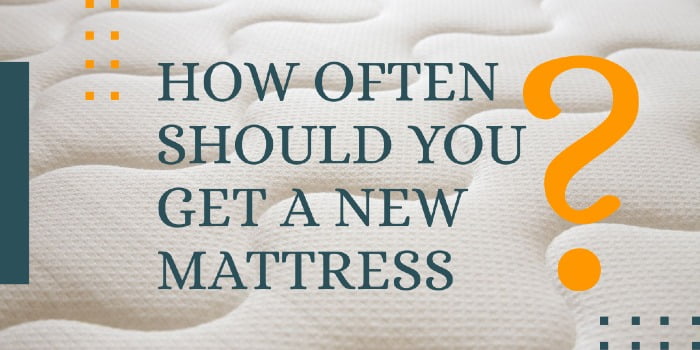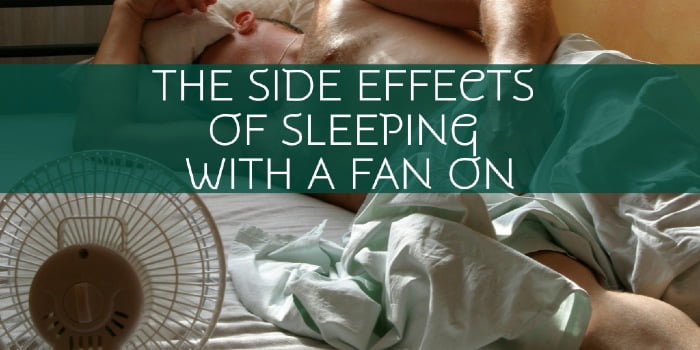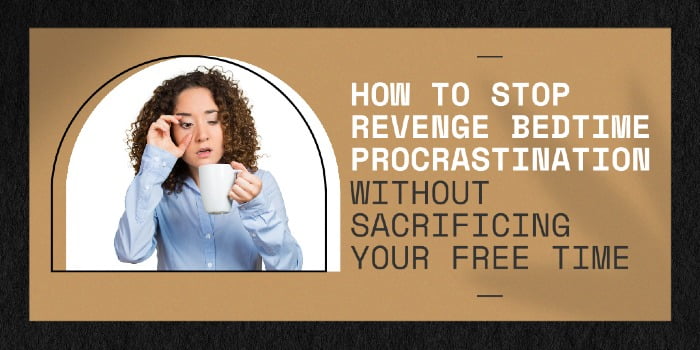We spend a third of our lives sleeping. It’s an absolutely essential part of our lives to help keep us fit, healthy, and happy.
Now, imagine spending that much time sleeping on a mattress that’s not good enough. It’s like running a marathon in broken shoes. The equipment just isn’t up for the job.
The general advice is that mattresses should be replaced every 6-8 years. Or, as most people may know it ‘replace every 8’. But this isn’t a one fits all solution. There are other different factors that determine when, and how often should you replace your mattress.
Ready to find out how often should you get a new mattress? Let’s dive in.
How long do mattresses last?
There’s not a set expiry date for mattresses. It’s not like milk, where it will suddenly go off if you’ve had it open a few days. Mattresses will last a different amount of time, depending on the material, how often it’s used and who is using it.
Generally, latex mattresses are the most long-lasting. Here’s how the different types of mattresses face up against each other.
Innerspring – 8 years
These are mattresses that contain coils inside them and what people think of most when referring to a common mattress. They are often the cheapest option available, don’t last as long as others. Most innerspring mattresses won’t last past 8 years but can hold on a little more if they’re flipped regularly.
Memory foam – 8-10 years
Memory foam mattresses are made of a material that ‘remembers’ its shape and bounces back to its springy form after use. But like other mattresses, they don’t last forever with an average lifespan of 8-10 years.
Latex – 15 years
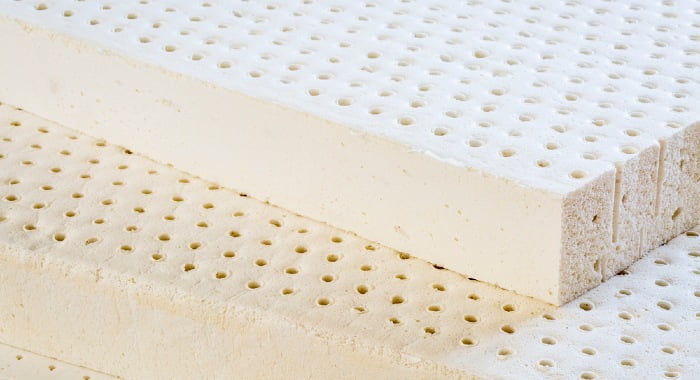
Latex mattresses are incredibly long-lasting, depending on if you get a synthetic or organic latex mattress. If you’re going for latex, you’ll want natural materials to make it last longer and be more comfortable.
Hybrid – 10 years
Hybrid mattresses are a combination of innerspring mattresses and foam mattresses, usually made up of several layers of foam and a coil support system in the middle. Because they’re combined with foam, they normally last a little longer than regular innerspring mattresses.
Waterbed mattresses – 5-10 years
Waterbed mattresses are either hard vinyl mattresses or soft foam mattresses that have water in the middle. Although waterbeds are more durable nowadays, they can still be prone to punctures and damages.
The more you use your mattress, the quicker it will need replacing. That means guest beds will be able to last longer than your regular bed. But, if you’ve got kids and pets in bed with you, you’ll find you need yours replacing much more often.
If you’re a heavier weight, you’ll also increase the rate that your mattress degrades.
Like anything else, the more care you take of a mattress, the longer it lasts. For some mattresses, like innerspring mattresses, this will mean flipping them around every couple of months. However, some mattresses, like pillow-top mattresses, won’t be able to be rotated.
Why do you need to replace mattresses?
Mattresses need to be replaced when they start to degrade to protect the quality of your sleep.
If you’re using the wrong mattress, you’ll find it harder to sleep and have more disturbed, uncomfortable rest at night. What’s more, you’re much more suspectable to aches and pains form a poor mattress.
In addition, old mattresses are much more likely to have bed bug infestations, as well as higher levels of staphylococcus, enterococcus, norovirus, and even MRSA, which can cause serious, antibiotic-resistant infections.
How to tell if your mattress needs replacing?
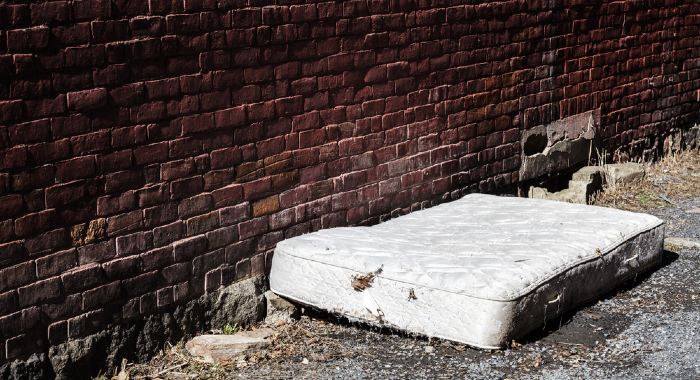
There are several tell-tale signs that your mattress needs replacing. If you notice one or more of the following, it’s time to upgrade your gear.
1. Your mattress is 7-10 years old
As we’ve pointed out earlier, different mattresses have different lifespans. But if yours is getting up to the end of theirs, then it’s probably time to replace it.
Things don’t last forever. But getting a decade out of a mattress is already a good sign of how often should you get a new mattress.
2. Your mattress is saggy or uneven
If there’s a dip in your mattress, or it’s wonky, then it might be at the end of its life. Sagging or dips in mattresses occur when part of the material is overly worn, causing the materials to literally break down.
Sleeping on an uneven mattress will make a huge impact on your sleeping posture, making you more likely to wake up with aches and pains.
3. You wake up with aches and pains
Wake up in the morning with sore or tight muscles? Have a lot of back or shoulder ache?
If you do, your mattress isn’t correctly supporting your muscles and posture while you sleep. This could be because it’s degraded and can’t offer the same level of support that you had while you purchased it, or it could be because you’re not using the right type of mattress for the way that you sleep.
Got a bad back and need more support? Find the best type of mattress for you here.
4. Your mattress isn’t comfortable
Getting to bed at night should be comfortable. If it’s not, then there’s a problem with your mattress. This is a strong indicator of how often should you get a new mattress!
However, you might not be able to notice how uncomfortable a mattress is until you’ve tried a different one. So, if you’ve gone to a hotel or stayed in another bed for the night and found it a lot more comfortable than yours, then your mattress may be too uncomfortable for you.
5. It takes you a long time to sleep

If it takes you a long time to sleep at night, this could be another sign that your mattress isn’t comfortable enough for you.
Mattresses are designed to make sleep easier. It’s their one job and if they’re not doing this, then you might need to make a change.
6. Your skin is itchy or you have worse allergies
Okay, this one is a little bit gross. But old mattresses are more susceptible to dust mites, which is the biggest allergen.
This is because old mattresses have a lot of dead skin cells on them from years of use, which makes a great meal and breeding ground for dust mites. If your bed is infested with them, you may wake up with itchy skin or eyes, sneezing, or worsening asthma.
7. You’ve dramatically changed weight
Mattresses feel and function differently to those of different weights. For example, if you are heavier weighted, soft mattresses might not be right for you as you’ll sink into them more, making them more uncomfortable.
If you’ve dramatically lost or gained weight, you might need to consider having a new mattress to be more in line with your new comfort and usage levels.
8. You’ve gained or lost a co-sleeper
Similar to the point above, if you’ve changed the amount of weight on your mattress by gaining or losing a co-sleeper, the way you use your mattress will change.
If you are sharing a bed regularly, it might be that you need a new mattress that accommodates both of your needs so you both get a good night’s sleep.
9. You can feel your partner move in the night

If you can feel your partner move and turn during the night, this means that your mattress doesn’t have good motion transfer. One reason for this is because the materials inside of them could be degrading, making you feel every slight movement.
If you want to choose a mattress with less motion transfer, you might want to consider memory foam mattresses.
10. Your mattress is noisy
Does your mattress creak or groan as you get on it?
That’s a sign that the springs and coils inside them aren’t up to scratch anymore. When these start to fail, your mattress may also start to dip and throw off your spinal alignment.
11. Your mattress has worn or frayed edges
Okay, having worn or frayed edges might not be the worst sign and ultimately won’t affect your sleep. But, this only tends to happen after years of heavy usage, which should prompt you to check for other signs of damage.
12. It feels harder or softer than when you brought it
Mattresses don’t always feel as comfortable and new as the day you get them. Over time, soft mattresses can lose their springiness and get harder. Likewise, hard mattresses can start to degrade and get softer.
If the firmness level of your mattress has changed and is no longer right for you, it might be time to upgrade.
13. Your needs have changed
10 years is a hell of a long time. There’s a lot that can happen in that time, and unfortunately, sometimes our needs change. If there’s an injury, such as a bad back, you might need to change the firmness of your mattress to become more comfortable during the night.
Similarly, your needs might change. Before, you might have loved a firm mattress. But now, you might actually be more comfortable on a softer one.
I need a new mattress. Which one should I get?
Generally speaking, if you’re wondering how often should you get a new mattress, that’s a sure sign that you should.
But, choosing the next mattress can be a hard decision. It’s a big investment and will be in your life for the next decade.
Don’t worry, to help you decide, we’ve put some of the best mattresses to the test. You can read all of our reviews here to get on the right track with your next mattress.
